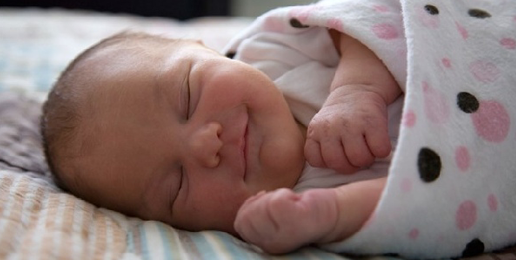
The theory that people are “born gay” has been used to argue that sexual orientation is similar to race—that “gay is the new black.” Based largely on this premise, the proposed “Equality Act,” which is currently under consideration in Congress, would treat sexual orientation exactly like race under federal civil rights laws. But is it true that sexual orientation is determined at (or before) birth?
The biological purpose of sex is reproduction, and natural sexual reproduction only occurs in opposite-sex relationships. So in one sense, everyone who is born with a normal reproductive system is physiologically “oriented” toward heterosexuality at birth.
However, this fundamental physical reality does not define what people today call “sexual orientation.” Sexual orientation involves a mix of sexual attractions, behaviors, and self-identification. Surveys about sexuality have shown that these three elements of sexual orientation are not always consistent with each other, and not always stable over time. There are also significant differences between male and female sexuality. This complexity and variability makes it somewhat difficult to even define “sexual orientation”—let alone declare that it is inborn.
As I demonstrated in a recent paper for Family Research Council, studies based on four large, population-based, longitudinal data sets drawn from such surveys all demonstrate that significant change in each of the elements of sexual orientation is possible. In one survey of “same-sex attracted respondents,” up to 38% of men and 53% of women “changed to heterosexuality” in only a six-year period. Even scholar Lisa Diamond (who herself identifies as a lesbian) has declared that “it is not scientifically accurate to describe same-sex sexual orientation as a uniformly immutable trait.” New research within the last month has reinforced this finding that “sexual orientation is fluid.”
This is not to say that people “choose” their sexual orientation. People have a choice regarding their behaviors and how they self-identify, but sexual attractions are generally not a choice. When the question is posed whether some people are “born gay,” the real question is, “Are some people oriented from birth toward homosexual attractions?”
In the early 1990s, there was great hope in some circles that a “gay gene” would be found that would prove homosexuality to be fixed and determined genetically. This enterprise has proved to be a notable failure. Even the American Psychological Association—which is very supportive of the LGBT movement—has conceded:
There is no consensus among scientists about the exact reasons that an individual develops a heterosexual, bisexual, gay or lesbian orientation. Although much research has examined the possible genetic, hormonal, developmental, social and cultural influences on sexual orientation, no findings have emerged that permit scientists to conclude that sexual orientation is determined by any particular factor or factors.
There may be some limited genetic influence on the development of same-sex attractions—but there is a significant difference between a trait being genetically influenced and genetically determined. Studies of identical twins show that when one twin is homosexual, the other (genetically identical) twin is usually not homosexual. This disproves the idea of homosexuality as a fixed, genetically determined trait.
Some researchers have suggested non-genetic biological theories for the origin of same-sex attractions, such as hormonal influences or intra-uterine experiences. For example, it has been reported that men with more older brothers are more likely to be homosexual, and it has been speculated that this could relate to a biological effect in the mother’s womb. No such effect has has ever been demonstrated, though, and critics have argued that a psychological explanation can account for this data as well as a biological one.
Most researchers prior to the 1970’s believed, as many still do today, that homosexual attractions are primarily a developmental result of childhood experiences. There are some patterns that appear frequently in the life histories of those with same-sex attractions. These include poor bonding with the same-sex parent or peers, or having been a victim of child sexual abuse.
Even some people who self-identify as gay are rejecting the idea that they were “born that way”—and the defensiveness of the implicit argument that “I’m only like this because I can’t help it.” Columbia University sociologist Shamus Khan laments that “biologists, social activists and scholars have not just tolerated a fiction, but in many instances propagated it”—giving credence to “a false idol of bad science.”
The “born gay” theory lacks scientific credibility, and it—and policies premised on it, such as the Equality Act—should be abandoned.
Peter Sprigg is a Senior Fellow for Policy Studies at Family Research Council in Washington, D.C.




















